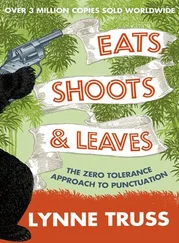Paul Morand - Tender Shoots
Здесь есть возможность читать онлайн «Paul Morand - Tender Shoots» весь текст электронной книги совершенно бесплатно (целиком полную версию без сокращений). В некоторых случаях можно слушать аудио, скачать через торрент в формате fb2 и присутствует краткое содержание. Год выпуска: 2011, Издательство: Pushkin Press, Жанр: Классическая проза, на английском языке. Описание произведения, (предисловие) а так же отзывы посетителей доступны на портале библиотеки ЛибКат.
- Название:Tender Shoots
- Автор:
- Издательство:Pushkin Press
- Жанр:
- Год:2011
- ISBN:нет данных
- Рейтинг книги:5 / 5. Голосов: 1
-
Избранное:Добавить в избранное
- Отзывы:
-
Ваша оценка:
- 100
- 1
- 2
- 3
- 4
- 5
Tender Shoots: краткое содержание, описание и аннотация
Предлагаем к чтению аннотацию, описание, краткое содержание или предисловие (зависит от того, что написал сам автор книги «Tender Shoots»). Если вы не нашли необходимую информацию о книге — напишите в комментариях, мы постараемся отыскать её.
Tender Shoots — читать онлайн бесплатно полную книгу (весь текст) целиком
Ниже представлен текст книги, разбитый по страницам. Система сохранения места последней прочитанной страницы, позволяет с удобством читать онлайн бесплатно книгу «Tender Shoots», без необходимости каждый раз заново искать на чём Вы остановились. Поставьте закладку, и сможете в любой момент перейти на страницу, на которой закончили чтение.
Интервал:
Закладка:
The corpses of students that remained in the Dardanelles or at La Bassée could be lined up along the length of three canal locks, and yet even more have returned. The colleges are opening annexes. Oxford is no longer that deserted inner courtyard, traversed at certain times of the day by professors without courses, surreptitious Hindus immersed in spiritualism and touring Canadian soldiers; it is not an eminent cloister as it once was, but an industrious hamlet whose inhabitants return from Greek and Latin as though from field or factory. It is no longer contaminated by elegance and lost time. A son’s education, the most onerous of English duties, is undergoing restrictions. The days of the daily Clicquot, of balls at the Clarendon, of Latin essays bought ready-written and of life lived on credit, when it was enough to toss off the name of a respectable college to tradesmen to avoid a bill arriving before the end of the third year summer term, those days now belong to the age of the early Georges, when students ruined themselves by living in style and kept mistresses. That is why, like my colleagues, I was reverting to frugal habits, living by the rule and dining almost every evening in hall, even though I had rooms in town. We gulped down the entremets, a sort of alternating pink and yellow mocha cake, which looked like bacon and tasted of pepsin, followed by a large glass of water. While the dons were saying grace, bread rolls rained down on Harris, the elderly refectory porter who, on special occasions, brings out his album of celebrities in which one can spot viceroys of India, dukes in gaiters, or even, attired in a braided black velvet jacket, Mr Oscar Wilde, the collector of blue china, who only astonished his age because he remained a Magdalen man all his life and did forced labour instead of paying fines.
I was living off the Banbury Road, an area dotted with cheap cottages where there are as many Wordsworth Houses and Keats Lodges as there are nannies on benches, restraining kisses on a lipless mouth, despite twisted spectacles and the irreparable snapping of celluloid collars. A second-year undergraduate, I had passed, proud of having sworn my oath in Latin, in tails, on the Bible, in the presence of the Vice-Chancellor; of having fallen into the river; and of returning, when such a thing was possible, from London, on the last train, known as the fornicators’ train, without falling victim to the university patrol after curfew, and master of all I surveyed because of a feudal custom that allowed me the right to the inside of the pavement and the middle of the river.
In the hallway, beneath the stags’ antlers where the gong hangs and the bucolic spectacle of stuffed swifts, I found a letter addressed to me. I climbed two floors to switch on the light of a room strewn with books, saddlery, soda siphons, with, on the walls, a toasting fork, a Dante Gabriel Rossetti and a cock fight in which two gentlemen sporting sideburns and stirrups are urging one bird towards the other with the help of paper cones.
I read this:
London, this 13th of March,
St Mary’s Convent,
King St,
Leicester Square, WC
Jean.
I have been living in London for a week. It is ten o’clock at night, and I have gone to bed, unable to sleep. I have a room in a convent. I hide my eau de Cologne, a luxury of Delphine’s. I have not been allowed to leave my suitcase in the corridor. There is nothing but pictures of my mother all around me; she is still the person who plays the greatest role in my life. Since my husband is dead, where I am is of no importance. I don’t know why I am no longer in Touraine. I caught the boat because of a poster. I am a young woman on my own. I miss the company of men and women and am repelled by it at the same time. I am as I was in the old days, by the banks of the Loire, but with nerves that are worn out. Now I’m feeling sleepy.
DELPHINE
Delphine.
The name flickers over the screen of my curtains. Landscapes merge into one another; one wonders what distraction has prompted a head to appear along a road, when suddenly there crystallises all around it some wooden panelling, a door, a window and a comfortable middle-class drawing room surrounded on all sides by a tropical landscape which, a moment beforehand, grew there; the drawing room, in turn, melted away beneath the force of one of those cinematographic squalls that visit the humblest gardens. So it is that my white varnished wooden mantelpiece, discoloured by anthracite, collapses, falls apart and dwindles into rosy hillsides in which I recognise Vouvray; the copper plaque begins to quiver and in turn diffuses into a powerful flow from which the Loire rises. I see once more a house with two wings clinging to a flight of steps, chintz curtains and a pianola. Delphine caused a spasm of asthmatic whistling to come from it and treated me to the overture to The Barber of Seville ; the long, perforated roll of notes folded in a zig-zag, emitting a rippling noise. While she played, I would gaze at her hair, the tough, twisted horsehair that I loved; life has added nothing to those hours, unless it is that hair should not be allowed to be naturally wavy. Then I took her hand and thought: “Nothing else matters.” The bellows of the pianola ceased to groan, the notes stopped tumbling down. I should have liked to remain like that for ever; but we were serious children; never hearing us laugh, Delphine’s aunt began to worry and before long two foolish eyes, swimming in the water of her lorgnette, denied us all privacy.
I was allowed to play with Delphine, who never got dirty and refused to climb up the ladder to the reservoir with me. But her coldness, her intelligence and “words that were not suitable for her age” displeased my grandparents.
“Delphine,” I heard them say, “is the image of her mother.”
Her mother lives in Toulon with a naval officer. A pallid-looking woman, with pink fingers, Annamese costumes, who never dresses up, and who lets exotic dishes grow cold without touching them; proud of days devoted to a table of specious men, wrinkled and full of maritime disillusions.
Delphine did not live poetically except in dreams. She recounted them to me in detail every day. They always contained water, clear when she felt well, muddy when she was tired. Frequently large cats, too, lynxes and panthers, but very gentle and with silky fur. She climbed up into the trees with them as high as the topmost branches from where she let herself drop down into space. She had a thorough knowledge of the meaning of dreams, and since this surprised me, she confessed that she corresponded with Mme de Thèbes and even showed me letters in which she addressed her informally.
Delphine meant the world to me. A world of more individual inspiration, less concerned with approval than the one to which I belonged.
“Never,” she asserted, “shall I be like those women who say no when they mean yes.”
She went around full of joy to be trying out words, to be putting ideas into practice. Every experience was a delight. No vocabulary struck her as unreasonable, no conduct deserving of disfavour. Though she never let herself go, she was aware, nevertheless, of all the imperfections of that world that stopped at the tollgates of Tours and, while she was very fond of me, she was not blind to my own either. She would have liked to see me wear spectacles.
I tried to dominate her through the mind. I lent her Dominique . She handed it back to me solemnly. “It’s beautiful”, and then concluded: “You are very sensual.” It was true. After meals, there were fiery patches on my plump cheeks, and my nose picked up some very common smells. Delphine, on the other hand, seemed to me to be restrained and private. She was a girl of her times, with a vast amount of knowledge, sure judgement; clever, proud of the influence she exerted, at a time when young men are obliged to live on credit, thanks to their hypocrisy or the leniency of older people. Everything that is languorous, rebellious, fecund and unclean in the human species seemed to have been apportioned to me. But all I could do was to improve. She had only to offer life that inscrutable face, that empty heart, to be immediately condemned by fate, to be troubled and beset on all sides, as soon as she ventured to leave home, by scandals, of which her marriage was not the least.
Читать дальшеИнтервал:
Закладка:
Похожие книги на «Tender Shoots»
Представляем Вашему вниманию похожие книги на «Tender Shoots» списком для выбора. Мы отобрали схожую по названию и смыслу литературу в надежде предоставить читателям больше вариантов отыскать новые, интересные, ещё непрочитанные произведения.
Обсуждение, отзывы о книге «Tender Shoots» и просто собственные мнения читателей. Оставьте ваши комментарии, напишите, что Вы думаете о произведении, его смысле или главных героях. Укажите что конкретно понравилось, а что нет, и почему Вы так считаете.












